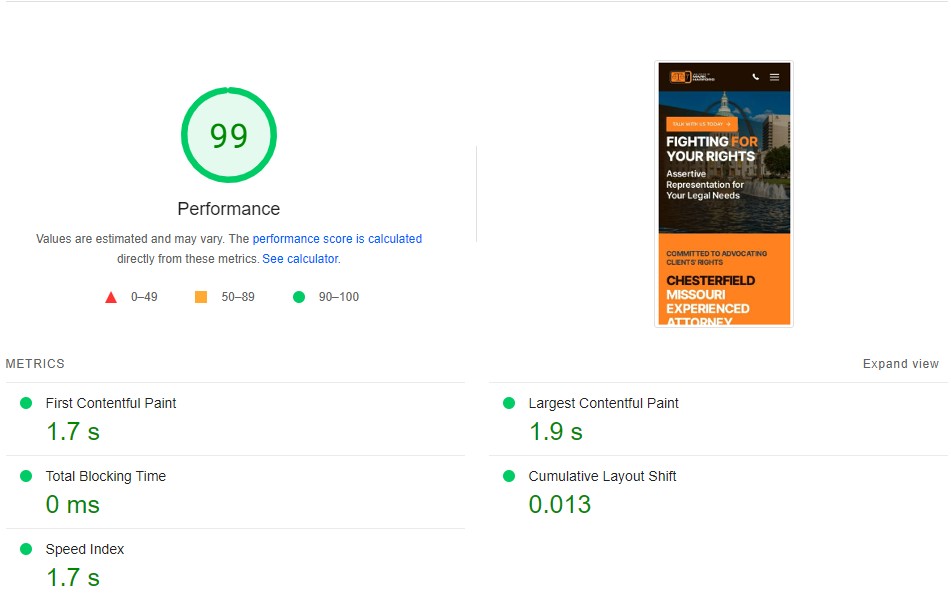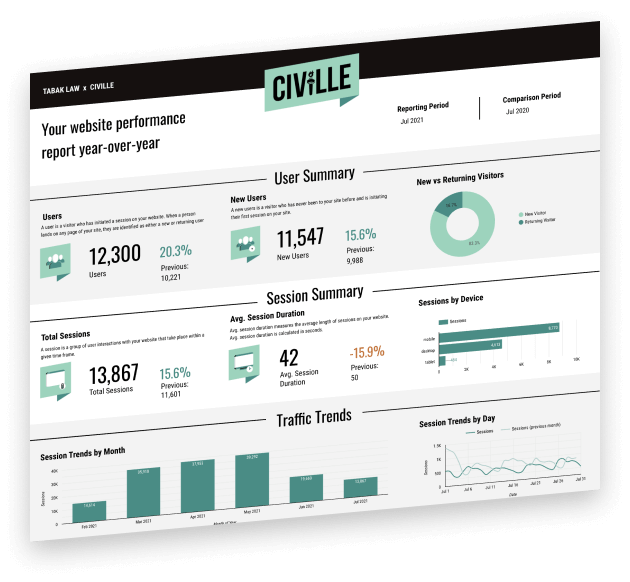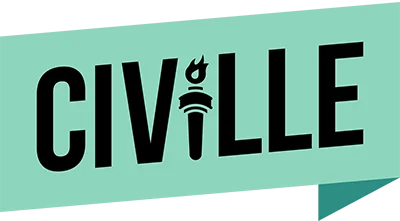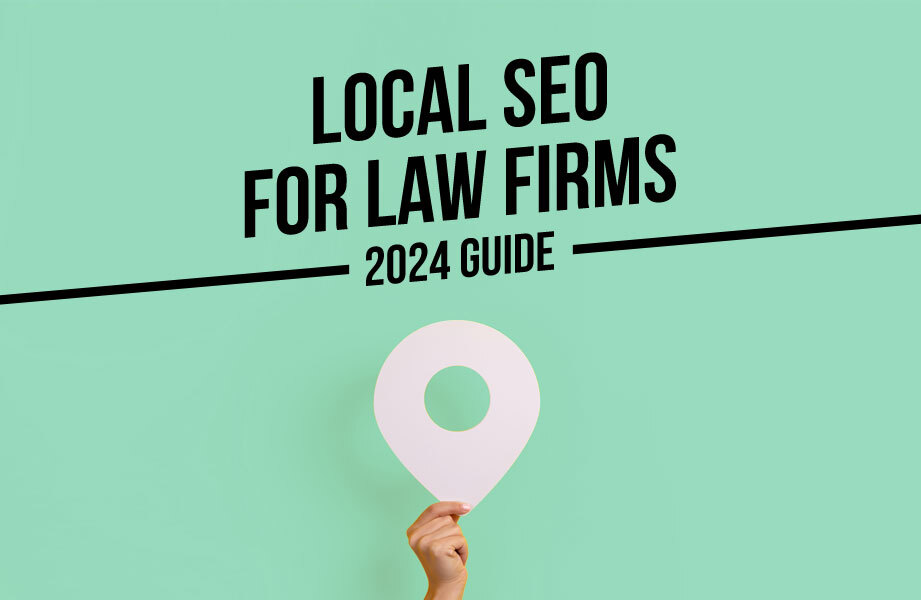
In today’s digital age, a robust online presence is essential for law firms of all sizes. Search Engine Optimization (SEO) is a cornerstone of that presence, boosting visibility and driving qualified leads to your website. If you’re new to the concept, don’t worry—this 2024 beginner’s guide to law firm SEO will give you a strong foundation for success.
What is Law Firm SEO, and Why Does It Matter?
SEO for law firms is the process of optimizing your website to rank higher in search engine results pages (SERPs) like Google. When people search for legal services related to your practice area and location, effective SEO helps your website appear at the top of their results.
Here’s why SEO matters for your firm:
- Increased Visibility—High rankings in SERPs bring more eyes to your website.
- Qualified Leads—Targeted SEO attracts users actively searching for legal services like yours, increasing lead generation.
- Cost-Effectiveness—Compared to traditional advertising, SEO offers a strong return on investment over time.
- Brand Authority—Ranking well establishes you as a trustworthy, knowledgeable firm within your field.
Read More: Can You Start a Law Firm With Just a Website?
Keyword Research: The Building Blocks of SEO
Think about the user behind the search query. Instead of focusing solely on keywords like “family lawyer,” delve into common questions or problems potential clients may be grappling with. Are they considering a divorce? Trying to understand child custody? Seeking guidance on estate planning? By understanding their true intent, you’ll be able to create content and optimize for phrases that connect directly to their needs.
Geo-targeting is crucial for law firms with primarily local clients. Don’t just optimize for “criminal defense lawyer”—include your location! This ensures that search engines understand you serve clients in your specific area, making you a prime candidate for searches like “best bankruptcy lawyer in Houston” or “top divorce lawyers near me.”

Keyword research tools give immense value to SEO. Google Keyword Planner is a great starting point. Advanced tools like SEMrush and Ahrefs provide deeper insights into search volume, keyword difficulty, and competitor analysis. Additionally, pay attention to Google’s autocomplete suggestions as you type as well as the “People also ask” section of your searches. They offer clues about popular related searches.
Uncovering Opportunities and Weaknesses Through Competitor Analysis
Keyword research isn’t just about finding the right terms. It’s about understanding the competitive landscape. Take a close look at law firms ranking well for your target keywords. Pay attention to:
- Their Content Strategy—What types of topics do they cover in blogs or website pages? Are they using different formats like videos or infographics?
- Target Audience—Is their messaging tailored to a specific demographic or type of legal issue?
- Backlink Profile—Analyze the quality and quantity of websites linking to them. Can you earn similar links or find sources they’ve overlooked?
- Areas of Opportunity—Where could you do better? Is there a niche legal need in your area that competitors aren’t fully addressing? Are they neglecting certain content formats?
Competitor analysis helps you discover potential niches you can capitalize on to differentiate your law firm. It shows you what’s already working in your market, but more importantly, where you can provide even greater value to potential clients. Much of keyword research is figuring out where you will fit in and where you can help more than anyone else.
Technical SEO: Fine-Tuning Your Website
While some technical SEO aspects get complex, foundational elements are essential for search engines to understand your content. Let’s break these down:
- URL Structure—Your URLs should briefly describe the page’s content, including target keywords if natural. Keep them short and simple for both users and search engines. Lastly, only use hyphens (-) to separate words in your URLs.
- Schema Markup—Schema is a type of code that provides more context about your website to search engines. It helps them understand things like your firm’s address, opening hours, or even lawyer profiles. Using relevant schema types boosts your chances of having your information featured in ‘rich snippets’ within search results, making them more informative and eye-catching.
Both potential clients and search engine ‘bots’ need to be able to understand and navigate your website easily. Use descriptive headings and subheadings to break up your content. Link related pages together with internal links, helping users find information quickly. A well-organized site structure with clear categories makes it easier for search engines to understand the focus of your pages and rank them accordingly.
The Importance of Page Speed
Website speed isn’t just about convenience—it directly impacts your search ranking. Compress large image files without sacrificing quality, streamline your website’s code (removing unnecessary elements) to reduce load times. Additionally, invest in a dependable hosting provider that offers fast servers and can handle traffic without slowing down your site.

With more people browsing the web on their phones than on desktop computers, a mobile-friendly website is non-negotiable. Use a responsive design that automatically adjusts to fit any screen size. Test your website on various mobile devices to ensure it looks great and functions seamlessly, regardless of how people are accessing it.
Content is King: Quality Over Quantity
Put yourself in the shoes of someone facing a legal issue. They won’t be searching for technical legal jargon. They’re looking for solutions in plain language. Anticipate the questions potential clients might have and create articles, videos, or even FAQs that provide easy-to-understand answers. Break down complicated legal concepts into simpler terms, using analogies whenever possible. The more genuinely helpful your content is, the greater trust you’ll build.
What Can a Blog Do for Your Law Firm
A blog is one of the best ways to demonstrate your expertise and target diverse potential client needs. Regular blog publishing sends positive signals to search engines. It demonstrates that your law firm is committed to staying current and providing value. A consistent publishing schedule, whether that’s weekly, bi-weekly, or monthly, shows commitment and keeps users coming back for more.
While a consistent flow of informative legal content is vital, consider these additions to broaden your blog’s reach:
- Localized Content—Go beyond legal practice areas and tap into your community. Write articles about local events relevant to your clients, changes to local laws that may affect them, or even highlight pro bono work your firm is involved in. This strengthens your connection to the region and makes you more relatable.
- Non-Legal But Relevant Content—Adding some carefully curated non-legal content can boost your blog’s appeal and draw in potential clients. You could try lifestyle topics that intersect with your client demographics. For example: if you specialize in estate planning, articles on financial planning could be relevant.
Important Note: When venturing outside purely legal content, ensure it still connects to your practice and/or your community. The goal is to demonstrate your understanding of client needs and position yourself as a valuable, holistic resource.
Other Content Mediums to Dominate
Not everyone learns best by reading text. Diversify your content formats to cater to different preferences. Consider short videos summarizing legal concepts, infographics explaining complex processes, or downloadable checklists that provide immediate value. This not only makes your website more user-friendly but also creates opportunities for your content to be shared and rank in different search formats (like Google Images or Videos).
On-Page Optimization: The Finer Details
On-page optimization refers to the process of refining elements directly within your website’s pages to improve search engine rankings and user experience. It encompasses factors like strategically placing keywords, crafting compelling title tags and meta descriptions, using header tags for content organization, optimizing images, and ensuring the overall content is informative and valuable to your target audience.
Utilizing and Optimizing the Proper Tags
Think of your title tag as the headline, and your meta description as the short advertisement under it. They influence whether someone clicks on your website in search results. Optimize your title tag for both clarity and keyword inclusion (aim for 50-60 characters). Your meta description should expand on the title tag, offering a concise and engaging reason for someone to choose your site (up to 155-160 characters is ideal). It’s worth noting here that there is no guarantee that Google will use your meta description as it often generates its own descriptions in search. Even so, give search engines like Google an excellent description to fall back on.
Think of header tags like an outline for your page. The H1 tag should be the main topic, with subsequent headings (H2, H3, etc.) breaking down subtopics. Search engines use this structure to understand the focus of your content. Additionally, well-organized headings make it easier for users to skim your page, quickly finding the information they need.
Optimizing Images
Alt text (or alternative text) is a written description of what’s in an image. This is important for accessibility, as screen readers rely on alt text to describe images to those with visual impairments. Additionally, search engines can’t ‘see’ the images themselves, but they do read alt text. Optimizing image alt text with brief and accurate (keyword-relevant when natural) descriptions helps your website’s images rank better in search results.
Beyond alt text, focus on optimizing your image file size, format, and display for the best balance of quality and website performance. Compress images to reduce file size without significantly impacting visual quality. Use appropriate file formats (JPEG for general photos, PNG for graphics with transparency, WebP for even smaller sizes). Finally, consider techniques like responsive image sizing, ensuring images are displayed at the correct size for different devices, and lazy loading images below the fold to improve initial page load speed.
Off-Page SEO: Building Authority
Think of backlinks as votes of confidence from other websites. When reputable websites, particularly those related to law or your local community, link to your content, it signals to search engines that your website is trustworthy and valuable. Focus on creating exceptional content that others are likely to share and reference, whether that’s in-depth blog posts, informative resources, or original research. Additionally, consider outreach to relevant websites or blogs, offering potential collaboration or guest post opportunities.
Accurate citations across various directories and platforms help search engines verify your law firm’s information and boost your presence in local searches. Focus on the big players like Google My Business, Yelp, Avvo, local bar association directories, and any niche directories specific to your practice area. Consistency of your firm’s name, address, and phone number (NAP) across these listings is crucial for local SEO success.
How to Build Backlinks for Law Firm SEO
Measuring SEO Success: Tracking Your Progress
Investing time and effort into SEO is important, but it’s equally important to measure your results to see what’s working and where to adjust your strategy. Here are key metrics to track:
- Organic Traffic—Tools like Google Analytics show you how much traffic is coming to your website through search engines (as opposed to referrals or paid ads). Monitor this over time to see if the number is steadily increasing.
- Keyword Rankings—Track where your website is ranking for your target keywords. Tools like SEMrush or Ahrefs provide in-depth reports on keyword positions and track changes.
- Conversions—A conversion is a desired action a user takes, such as contacting your firm, scheduling a consultation, or signing up for an email list. Set up conversion tracking in Google Analytics.
- Backlink Profile—See how many backlinks your site has earned and from which domains. This helps measure your website’s growing authority.
- Bounce Rate—Reflects how many users visit your site and immediately leave. A high bounce rate might indicate problems with content quality or user experience.

Tools for Success
- Google Analytics—A free and essential tool, Google Analytics provides detailed data on website traffic, audience behavior, and much more. There is no reason for you not to be using this tool.
- Google Search Console—Provides free insights into your search ranking performance, any technical errors, and search queries that bring people to your site. Again, there is no reason why you shouldn’t be using this tool.
- SEMrush, Ahrefs, etc.—Premium SEO tools offer advanced features for in-depth keyword research, backlink analysis, and competitor monitoring.
Read More: How to Audit a Law Firm Website for SEO in 2024
Important Note: SEO is a long-term game. Be patient and consistent. Regularly reviewing your metrics will help you understand how your efforts are paying off and where you can refine your strategy for continued improvement.
100 Best Law Firm Websites | 2024 Web Design Winners
Get Expert Help From Civille to Supercharge Your Law Firm’s SEO
SEO is an ongoing process that requires in-depth knowledge, constant adaptation, and a strategic approach. While we’ve covered the fundamentals here, successful implementation can be complex, especially if you’re juggling the demands of running your law firm.
At Civille, we specialize in custom law firm websites and tailored digital marketing. Our team of experts can handle all aspects of your SEO, from in-depth technical analysis and content creation to building your backlink profile and optimizing for local searches. We understand the unique challenges faced by law firms and how to navigate the digital landscape to attract the right clients.
If you’re ready to see real results from your SEO and grow your practice, contact us today for a free consultation. Let us handle the complexities of online marketing so you can focus on what you do best – serving your clients.





